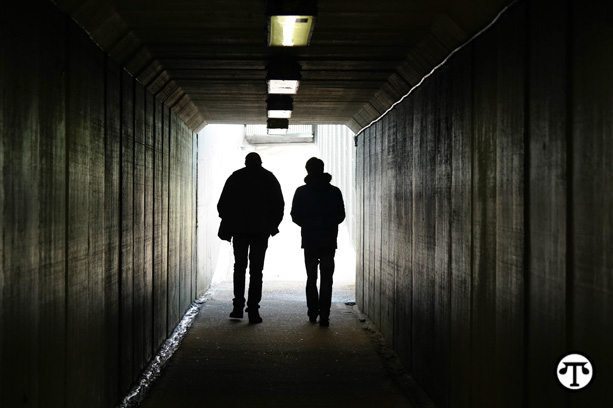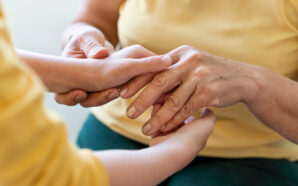Greg (not his real name) was worried when he noticed Heather (not her real name) did not show up to teach her Sunday school class at their church. Skipping a commitment was out of character for his normally reliable and responsible friend. Knowing that Heather had been struggling with depression, Greg texted her to see how she was doing. Heather replied, indicating that she was really struggling—she was having a mental health crisis.
Greg had recently completed a Mental Health First Aid course and knew there were specific actions he could take to help Heather. Mental Health First Aid is a mental health literacy program in which everyday people can learn the signs and symptoms of behavioral health problems and crises, as well as ways to support those who are facing crises, and where to refer them for appropriate professional care. A growing trend, more than half a million people have already been taught to be “first responders” in mental health. These training programs, offered nationwide in schools, community centers, churches and other organizations, are supported by the Substance Abuse and Mental Health Services Administration (SAMHSA).
Equipped with the lessons he had learned, Greg decided to visit Heather. When he arrived at her apartment, it was clear that Heather wasn’t doing well. She was unusually reserved and quiet, and though she said she wanted to tell her friend how she was feeling, she couldn’t find the right words. To further assess the situation and how he could help, Greg asked Heather to sit down and encouraged her to talk with him.
Seeing his friend in distress was not easy, but Greg drew on some of the skills he learned in Mental Health First Aid training. He went through the recommended steps of helping someone experiencing a crisis with Heather. During their talk, Greg actively listened as she tried to express her feelings, made sure she wasn’t at risk of hurting herself, and suggested self-care practices such as breathing techniques and exercising. After talking for a while, she seemed to feel better. Greg also helped Heather come up with a plan to get professional support from her counseling center on her campus.
Heather is one of the more than 20 percent of young adults, aged 18 to 25, who have had a mental health condition in the past year, according to the National Survey on Drug Use and Health report, published annually by SAMHSA. Even celebrities who seemingly have it all can be affected. For instance, actress Brittany Snow and singer and actress Demi Lovato have both spoken openly about their own mental health challenges in an effort to improve public awareness and lessen obstacles to obtaining help. Snow was awarded a SAMHSA Voice Award for developing the Love is Louder movement with The Jed Foundation, a program that has helped individuals, campuses and communities address behavioral health challenges nationwide. Similarly, Lovato received special recognition at SAMHSA’s National Children’s Mental Health Awareness Day event for speaking openly of her mental health challenges and her need for support, and raising awareness of mental health issues affecting young adults.
For people of all ages who are experiencing a mental health problem or crisis, Mental Health First Aid can provide valuable, initial support. It is a critical starting point to supporting someone in crisis and referring to treatment, if needed. Community members who want to be prepared to help friends, family members and neighbors who may experience mental health concerns can sign up for a Mental Health First Aid course at http://mentalhealthfirstaid.org.
Five Steps in Mental Health First Aid
Mental Health First Aid teaches critical steps for helping a person in crisis. These five steps will help you assess the situation and determine the best way to help:
- Assess risk of self-harm or suicide
- Listen without judgment
- Reassure and provide helpful information
- Encourage professional support
- Suggest self-care techniques.
To learn more about Mental Health First Aid, visit http://in tegration.samhsa.gov/mental-health-first-aid. Additional information on mental health and wellness can be found at http://samhsa.gov.
More than half a million Americans have learned to be “first responders” for friends and relatives having mental health problems—you can, too.






